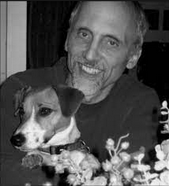Prof Don Foster by David Freed
 The Atlantic, David Freed, May 2010: Don Foster, a professor of English at Vassar College and a self-styled literary detective, who had achieved modest celebrity by examining punctuation and other linguistic fingerprints to identify Joe Klein, who was then a Newsweek columnist, as the author of the anonymously written 1996 political novel, Primary Colors.
The Atlantic, David Freed, May 2010: Don Foster, a professor of English at Vassar College and a self-styled literary detective, who had achieved modest celebrity by examining punctuation and other linguistic fingerprints to identify Joe Klein, who was then a Newsweek columnist, as the author of the anonymously written 1996 political novel, Primary Colors.
Historic Mysteries: Foster was praised for his keen sleuthing skills. Don Foster Don Foster also analyzed .. The Night Before Christmas and questioned if it was indeed written by the unanimously-accepted Clement Clarke Moore.
Foster first came to prominence in his graduate school work regarding the famous sonnets of Shakespeare. An early edition of the sonnets was dedicated to “Mr. W. H.”, and scholars have debated for centuries who this mysterious man could be.
Foster developed a theory that the dedication should actually read “Mr. W. S.” or even “Mr. W. Sh.” indicating Shakespeare himself.
Later, Don Foster stumbled onto what he proclaimed to be a lost poem of Shakespeare’s titled “A Funerall Elegye in memory of the late Vertuous Maister William Peeter.”
It wasn’t one of Shakespeare’s best poems, but if it was written by The Bard it would have been the first newly discovered work in more than 100 years. Immediately, some scholars believed that Foster was correct in his summation, and several anthologies included the “new” poem in their collections.
Academic Kids: Foster('s) .. involvement in the JonBenét Ramsey murder case aroused criticism when it emerged that the scholar had offered his services to both sides, initially lobbying passionately for Patsy Ramsey's innocence, but then going on a few months later, having been spurned by Ramsey's lawyers and hired by the police, to argue dispassionately for the opposite verdict.
Foster later came to the attention of law enforcement officials who requested his help in attempting to determine the authors of two crime-related documents. Foster approached these documents with in-depth analysis using both computers and his common sense
Atlantic/David Freed: Foster had since consulted with the FBI on investigations of the Unabomber and Atlanta’s Centennial Olympic Park bombing, among other cases.
Foster surmised that the killer was an American posing as an Islamic jihadist.
(A) limited number of American scientists would have had a working knowledge of anthrax.
One of those scientists, Foster concluded, was a man named Steven Hatfill, a medical doctor who had once worked at the Army’s elite Medical Research Institute of Infectious Diseases (USAMRIID), which had stocks of anthrax.
Prof Don Foster, (English) Vassar College February 2002: When I lined up Hatfill’s known movements with the postmark locations of reported biothreats, those hoax anthrax attacks appeared to trail him like a vapor cloud.
Atlantic/David Freed: Scouring the Internet, (Prof) Foster found an interview that Hatfill had given while working at the National Institutes of Health, in which he described how bubonic plague could be made with simple equipment and used in a bioterror attack.
Foster later tracked down an unpublished novel Hatfill had written, depicting a fictional bioterror attack on Washington.
He discovered that Hatfill had been in Rhodesia (present-day Zimbabwe) during an anthrax outbreak there in the late 1970s, and that he’d attended medical school near a Rhodesian suburb called Greendale - the name of the invented school in the return address of the anthrax letters mailed to the Senate.
The deeper Foster dug, the more Hatfill looked to him like a viable suspect.
Foster says he met Rosenberg over lunch in April 2002,
Prof Don Foster: (We ) compared notes .. laid out the evidence, such as it was, hers and mine .. found that our evidence had led us in the same direction.
David Freed: Weeks dragged on* while he and Rosenberg tried to interest the FBI in their theories.
Don Foster: (T)he bureau remained stubbornly unwilling to listen. (2mths later) patience exhausted. Rosenberg met on Capitol Hill with Senate staff members Special Agent Van Harp, the senior FBI agent on what by then had been dubbed the “Amerithrax” investigation, was summoned to the meeting, along with other FBI officials.
“
Barbara Hatch Rosenberg, a passionate crusader against the use of bioweapons, was also convinced that an American scientist was to blame for the anthrax.
* Luxury!
